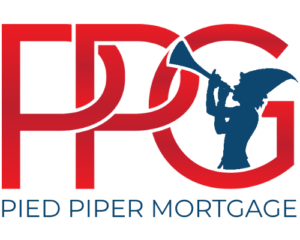Purchasing your first home is an exciting milestone, but navigating the process of securing a first-time homeowners loan can be daunting. This guide aims to demystify the process, provide essential information, and offer practical tips to help you obtain your first-time home loan with confidence. By understanding the various types of loans, eligibility requirements, and steps involved, you can make informed decisions and achieve your dream of homeownership.
Understanding First-Time Homeowners Loans
First-time homeowners loans are designed to help individuals purchase their first home by offering favorable terms and conditions. These loans typically come with lower down payment requirements, reduced interest rates, and flexible qualification criteria. There are several types of first-time homebuyer programs available, including government-backed loans and conventional loans.
Types of First-Time Homeowners Loans

- Federal Housing Administration (FHA) Loans: These loans are insured by the FHA and are popular among first-time homebuyers due to their low down payment requirements (as low as 3.5%) and flexible credit score criteria.
- Veterans Affairs (VA) Loans: Available to veterans, active-duty service members, and eligible spouses, VA loans offer competitive interest rates and require no down payment or private mortgage insurance (PMI).
- United States Department of Agriculture (USDA) Loans: These loans are designed for rural and suburban homebuyers who meet specific income requirements. USDA loans offer 100% financing, meaning no down payment is required.
- Conventional Loans: While not government-backed, conventional loans can also be a good option for first-time buyers. These loans typically require higher credit scores and larger down payments but may offer better terms for those who qualify.
Eligibility Requirements for First-Time Homeowners Loans
To qualify for a first-time homeowners loan, you must meet certain eligibility criteria, which can vary depending on the type of loan and the lender. Common requirements include:
- Credit Score: A good credit score is essential for securing favorable loan terms. FHA loans generally require a minimum credit score of 580, while conventional loans may require a score of 620 or higher.
- Income and Employment: Lenders will assess your income and employment history to ensure you have a stable source of income to repay the loan. Providing proof of steady employment for at least two years is typically required.
- Debt-to-Income Ratio (DTI): Your DTI ratio is the percentage of your monthly income that goes toward debt payments. Lenders prefer a DTI ratio of 43% or lower, though some loan programs may allow for higher ratios.
- Down Payment: While down payment requirements vary, FHA loans require as little as 3.5% down, while conventional loans may require 5-20%. VA and USDA loans often require no down payment.
- First-Time Homebuyer Status: Some programs specifically target first-time homebuyers, defined as individuals who have not owned a home in the past three years.
Steps to Getting a First-Time Homeowners Loan
1. Assess Your Financial Situation
Before applying for a loan, evaluate your financial situation. Review your credit report, pay off outstanding debts, and save for a down payment. This preparation will improve your chances of securing a loan with favorable terms.
2. Get Pre-Approved
Obtaining a pre-approval letter from a lender shows sellers that you are a serious buyer and provides an estimate of how much you can borrow. To get pre-approved, you’ll need to provide financial documents, such as tax returns, pay stubs, and bank statements.
3. Choose the Right Loan Program
Research and compare different loan programs to find the one that best suits your needs. Consider factors such as down payment requirements, interest rates, and eligibility criteria.
4. Find a Real Estate Agent
Working with an experienced real estate agent can simplify the homebuying process. An agent can help you find properties that meet your criteria, negotiate with sellers, and guide you through the closing process.
5. Make an Offer
Once you find the right home, your real estate agent will help you make a competitive offer. Be prepared for negotiations, and ensure that the offer is contingent upon securing financing.
6. Complete the Loan Application
After your offer is accepted, you’ll need to complete a formal loan application. This involves providing detailed financial information and undergoing a thorough credit and employment check.
7. Home Inspection and Appraisal
A home inspection ensures the property is in good condition, while an appraisal determines its market value. Both are crucial steps in the loan approval process.
8. Finalize the Loan
If the inspection and appraisal go smoothly, your lender will finalize the loan terms. You’ll review and sign the loan documents, pay closing costs, and receive the keys to your new home.
Why Choose Pied Piper Mortgage for Your Homebuying Needs?
At Pied Piper Mortgage we understand that buying your first home is a significant life event. Our team of experienced real estate professionals is dedicated to helping you navigate the homebuying process with ease. We offer personalized guidance, expert advice, and a range of services to make your homebuying experience as smooth and stress-free as possible.
Our Services Include:
- Homebuyer Education: We provide resources and workshops to educate first-time homebuyers on the loan process, budgeting, and homeownership responsibilities.
- Loan Assistance: Our team works with reputable lenders to help you find the best loan program for your needs.
- Property Search: We utilize advanced search tools to find properties that match your criteria and budget.
- Negotiation Support: Our skilled negotiators work to secure the best terms and conditions for your home purchase.
- Closing Assistance: We guide you through the closing process, ensuring all paperwork is completed accurately and on time.
Choosing Pied Piper Mortgage means having a trusted partner by your side, every step of the way. Let us help you turn your homeownership dreams into reality.
FAQs About First-Time Homeowners Loans
What is the minimum credit score required for a first-time homebuyer loan?
The minimum credit score varies by loan type. FHA loans typically require a minimum score of 580, while conventional loans may require a score of 620 or higher.
Can I get a first-time homebuyer loan with no down payment?
Yes, certain loan programs, such as VA and USDA loans, offer 100% financing, meaning no down payment is required.
How do I know if I qualify as a first-time homebuyer?
You are considered a first-time homebuyer if you have not owned a home in the past three years. Some loan programs may have additional eligibility criteria.
What are closing costs, and how much should I expect to pay?
Closing costs are fees associated with finalizing your home purchase and loan. They typically range from 2-5% of the loan amount and can include appraisal fees, title insurance, and attorney fees.
How long does it take to get a first-time homebuyer loan approved?
The loan approval process can take anywhere from 30 to 60 days, depending on various factors such as the lender’s processing time and the complexity of your financial situation.
Can I use gift funds for my down payment?
Yes, many loan programs allow the use of gift funds for the down payment, provided the funds come from a relative or close friend and are properly documented.
What is private mortgage insurance (PMI), and do I need it?
PMI is insurance that protects the lender if you default on your loan. It is typically required for conventional loans with a down payment of less than 20%. FHA loans require a similar insurance called mortgage insurance premium (MIP).
How can I improve my chances of loan approval?
To improve your chances of loan approval, maintain a good credit score, save for a down payment, pay off outstanding debts, and ensure stable employment. Providing accurate and complete documentation during the application process is also crucial.
Final Thoughts
Securing a first-time homeowners loan can be a complex process, but with the right knowledge and preparation, it is achievable. By understanding the different types of loans, meeting eligibility requirements, and following the necessary steps, you can successfully obtain a loan and purchase your first home. Remember, the team at Pied Piper Mortgage is here to assist you throughout your homebuying journey, providing expert guidance and support. Start your journey to homeownership with confidence and make your dream home a reality.






